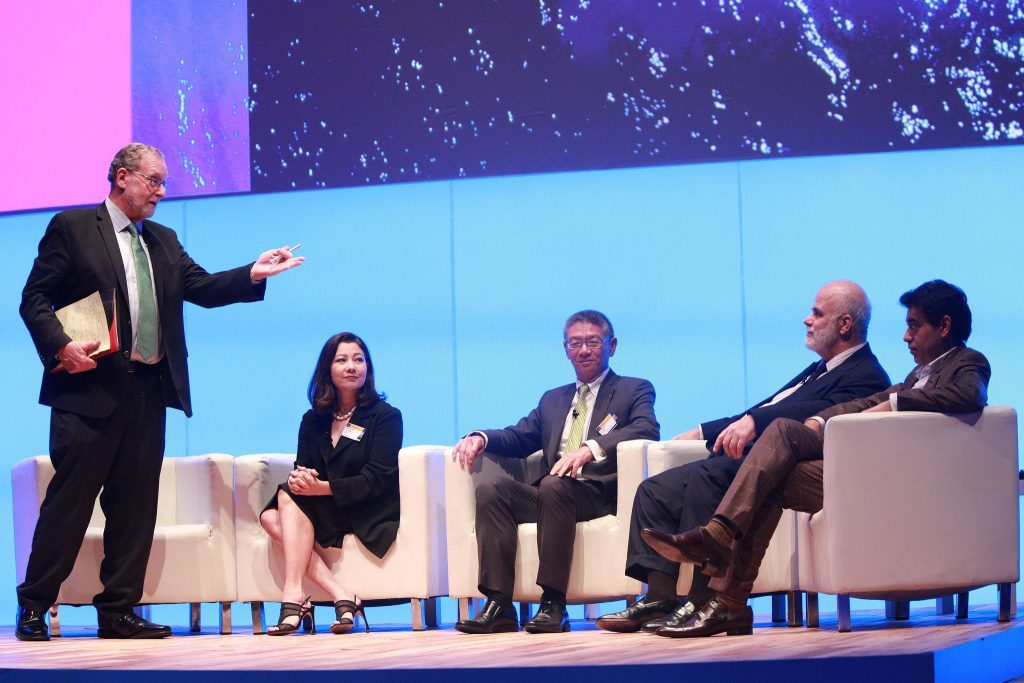Skift Take
All these points are quite basic, but in the chase for bling, brands often forget that they're the building blocks of luxury.
The fundamentals have not changed. That’s the key takeaway from the panelists discussing luxury at the recent World Travel and Tourism Council Summit in Bangkok, Thailand.
According to Clement Kwok, Managing Director & CEO, Hongkong & Shanghai Hotels, while the luxury traveler still expects service, personalization, and pampering, “This idea of people wanting to be pampered, we don’t think will change very much. However, the channels through which you do your pampering or the trends and styles of how people want to be pampered may change.”
For example, he cites increasing use of technology as a way for guests to interact with staff. Even so, Deepak Ohri, CEO, lebua Hotels & Resorts notes that “emotional connection trumps technology.” Ohri continues, “Luxury is actually proportional to the mass. If the whole mass is going toward technology, luxury is going completely different…” In other words, toward high-touch.
[signupform id=”91580e75-6c0e-4e11-8df7-7f1dd2376b1f” text=”Interested in more stories like this? Subscribe to Skift’s New Luxury Newsletter to stay up-to-date on the business of modern luxury travel.” class=”purple”]
Human interaction, after all, is a key part of the travel experience. And that experience, far more than material goods, is what seems to matter more these days in the luxury sector. According to Manfredi Lefebvre d’Ovidio di Balsorano de Clunieres, Chairman, Silversea Cruises, a fundamental change in luxury consumer spending today is that it’s “more about experiences than buying things you can keep. No one gives you back your time.” Silversea is responding to this demand by adding more choices of experiences, including ones that are more physical and/or more participatory in nature.
Social responsibility was another topic discussed by the panel. When the moderator asked the audience whether the luxury sector was doing enough to be sustainable, the audience overwhelmingly voted no. Granted, that opinion may have somewhat been colored by the fact that previous panels focused on sustainability issues in depth.
Nonetheless, while the panelists agreed the luxury sector could do more, from the onstage perspective, sustainable luxury is already a core value at their companies. Lefebvre d’Ovidio pointed out that Silversea goes beyond standards required by law, given that “the environment is what we sell.” Kwok says the hotel industry has to consider sustainability starting from the ground up — from building in an environmentally-conscious way to sourcing materials and products used every day.
In the wake of the United Airlines dragging debacle, the hospitality veterans also discussed the importance of employee training and empowerment. The luxury sector has always been known for providing high levels of service. To continue on the leading edge, the panelists agreed companies first have to create a culture of service.
After that, Ohri said, employee training should include encouraging team members to have conversations with customers in order to learn what they need. It’s also important not to lean too much on technology. In today’s wired world, Ohri emphasizes that “we, as companies innovating in luxury, have to take a step backward or ahead to differentiate ourselves… and go back to the basics.”
The Daily Newsletter
Our daily coverage of the global travel industry. Written by editors and analysts from across Skift’s brands.
Have a confidential tip for Skift? Get in touch
Photo credit: The fundamentals of luxury have not changed -- a key takeaway from WTTC in Bangkok. Pictured from left: Moderator Peter Greenberg; Chadatip Chutrakul, CEO, Siam Piwat Co. Ltd.; Clement Kwok, Managing Director & CEO, Hongkong & Shanghai Hotels; Manfredi Lefebvre d'Ovidio di Balsorano de Clunieres, Chairman, Silversea Cruises; and Deepak Ohri, CEO, lebua Hotels & Resorts WTTC / Flickr
